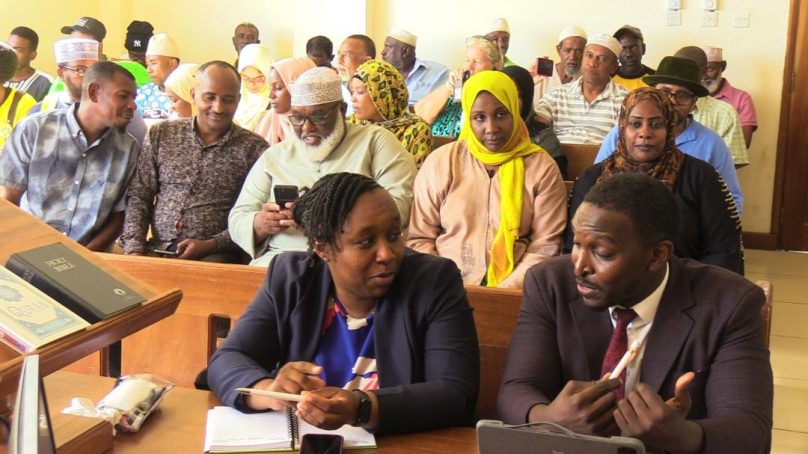
Environment and Land Court in Malindi on Thursday upheld a landmark 2019 ruling that revoked the environmental impact assessment (EIA) licence for the proposed Lamu Coal Power Plant.
Justice Francis Njoroge dismissed an appeal by Amu Power Company Ltd, affirming a decision of the National Environment Tribunal (NET) that cancelled the licence issued by the National Environment Management Authority (NEMA).
The 1,050-megawatt coal plant, which had been planned for Kwasasi area of Lamu County has faced sustained opposition from local residents, civil society organisations, and environmental activists for nearly a decade.
The case was filed by Save Lamu with support from Natural Justice, Katiba Institute and the DeCOALonize Campaign, which argued that the project violated constitutional rights and environmental laws.
Justice Njoroge, who delivered the verdict virtually, concurred with the NET that the Environmental Impact Assessment (EIA) process was fundamentally flawed and that it failed to meet legal standards for public participation. He noted that the EIA report did not adequately address critical issues such as ash disposal, air pollution, and climate change impacts.
“The process violated Articles 42 and 69 of the Constitution, which guarantee every Kenyan the right to a clean and healthy environment,” the judge said. “Public participation, environmental protection and respect for constitutional rights cannot be overlooked in pursuit of unsustainable projects.”
Speaking immediately after the landmark ruling, representatives of the environmental advocacy groups, hailed the ruling as a major victory for the people of Lamu and a milestone in Kenya’s climate justice movement. Members of the groups sat patiently inside the courtroom as the judge, who was not present in the court room delivered the ruling via a video link from his laptop computer.
Director of Natural Justice Hub Elizabeth Kariuki said the judgment reinforces Kenya’s commitment to safeguarding both people and the environment.
“Development must never come at the expense of health, culture or nature. This victory belongs to the people of Lamu,” she said.
Save Lamu Chairperson Somo M. Somo, welcomed the decision, saying it had restored community trust in the judiciary.
“Justice for Lamu is justice for the planet. This ruling shows that when communities are heard, the law protects both people and nature,” he said.
Katiba Institute Head of Strategic Litigation Emily Kinama described the ruling as monumental, noting that it affirmed the importance of public participation and the precautionary principle in environmental governance.
The judgment is expected to set a precedent for future energy and development projects across the country.
Environmental advocates urged the government to prioritise clean and renewable energy sources over coal and other fossil fuels.
“Kenya has sent a clear message that outdated and polluting energy pathways have no place in our future,” Executive Director of Natural Justice Farida Aliwa said.
Lamu Coal Project was initially approved in 2016 and would cost over Ksh200 billion ($1.546 billion) has faced persistent resistance from communities concerned about health risks, livelihood disruption and damage to Lamu’s fragile ecosystem.
Representatives of Amu Power Company Limited could not immediately be reached for comment as their lawyers were not physically present in court.
- A Tell Media / KNA report / By Shani Rhai and Emmanuel Masha







